We are try to create a service using node.js in Azure to download. We are sending writeStream in response.
Updated:
var option = new Object();
option.disableContentMD5Validation = true;
option.maximumExecutionTimeInMs = 20 * 60000;
fileService.getFileToStream(shareName, dirPath, fileName, response, option, function (error, result, response) {
if(!error) {
if(response.isSuccessful) {
console.log("Success!");
}
}
});
While downloading files less than 4MB its working fine. But while downloading more than 4MB its giving error.
java.net.SocketException: Connection reset
at java.net.SocketInputStream.read(Unknown Source)
at java.net.SocketInputStream.read(Unknown Source)
at sun.security.ssl.InputRecord.readFully(Unknown Source)
at sun.security.ssl.InputRecord.read(Unknown Source)
at sun.security.ssl.SSLSocketImpl.readRecord(Unknown Source)
at sun.security.ssl.SSLSocketImpl.readDataRecord(Unknown Source)
at sun.security.ssl.AppInputStream.read(Unknown Source)
at java.io.BufferedInputStream.fill(Unknown Source)
at java.io.BufferedInputStream.read1(Unknown Source)
at java.io.BufferedInputStream.read(Unknown Source)
at sun.net.www.MeteredStream.read(Unknown Source)
at java.io.FilterInputStream.read(Unknown Source)
at sun.net.www.protocol.http.HttpURLConnection$HttpInputStream.read(Unknown Source)
at sun.net.www.protocol.http.HttpURLConnection$HttpInputStream.read(Unknown Source)
at FileserviceTest.sendGET(FileserviceTest.java:58)
at FileserviceTest.main(FileserviceTest.java:18)
Below is the sample java client code.
public static void sendGET() throws IOException {
FileOutputStream fos = null;
URL obj = new URL("https://crowdtest-fileservice.azure-mobile.net/api/files/");
HttpURLConnection con = (HttpURLConnection) obj.openConnection();
con.setRequestMethod("GET");
con.setRequestProperty("sharename", "newamactashare");
con.setRequestProperty("directorypath", "MaheshApp/TestLibrary/");
con.setRequestProperty("filename", "Test.apk");
int responseCode = con.getResponseCode();
System.out.println("GET Response Code :: " + responseCode);
if (responseCode == HttpURLConnection.HTTP_OK) { // success
fos = new FileOutputStream("C:/Users/uma.maheshwaran/Desktop/Test.mt");
InputStream iin = con.getInputStream();
byte[] buffer = new byte[4096]; // declare 4KB buffer
int len;
// while we have availble data, continue downloading and storing to
// local file
while ((len = iin.read(buffer)) > 0) {
fos.write(buffer, 0, len);
}
iin.close();
fos.close();
// print result
System.out.println("Done");
} else {
BufferedReader br = new BufferedReader(new InputStreamReader(con.getErrorStream()));
String line = "";
while ((line = br.readLine()) != null) {
System.out.println(line);
}
System.out.println("GET request not worked");
}
}
Can we convert write stream to buffer stream. If so how can we send that in response. Or is there any other way to send a large stream of data in response. Please help me on this. I am new to node.js.




